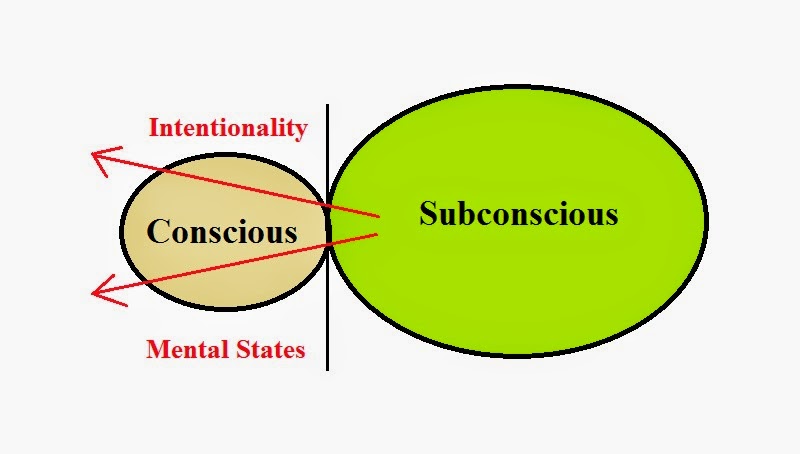We can learn a lot from philosophy and apply
that to management in much the same way as we can learn from psychology,
anatomy, or economics and use those principles within the workplace. I have the
pleasure of engaging in a philosophy group that focuses on understanding key
concepts of philosophy and finding practical uses for philosophical principles
within our lives. The principles of philosophy can be used to create greater
management skill and understanding of human behavior.
The subconscious influences a wide variety of daily
behaviors without us even knowing it. The philosophical group moved from
discussions of the conscious last week to the subconscious this week. The debate
included concepts such as the need for the subconscious, nature of the subconscious,
and intentionality. There are three reasons why as business professor I would
be interested in the conscious, subconscious and intentionality.
Philosophy
as a Platform:
Philosophy is pre-science that leads to greater
discoveries about life and human nature. Philosophy first generates a mental
conception of an idea and science tests it. Old ideas that don’t have a solid
empirical footing eventually die off while new ideas emerge that better explain
the nature of events. We must first think it before we can test it and use it.
In the world of business, innovation is an
important part of growing new products and services. The nature of philosophy
helps business theorists understand human motivation, nature of life, and the
process of creativity. Philosophy provides a broad framework in which details
are drawn into through experience and empirical evidence.
The Nature of the Subconscious:
Originally developed by psychologist Pierre
Janet, the subconscious is seen as something under the layers of our conscious
thought and generally out of our awareness. It is a little like dropping down a
well where it becomes difficult to see even though you can feel the coolness of
the water. You may grab a hazy object
and come to the surface whereby the sunlight (awareness) allows us to analyze
the object.
The subconscious can be seen as a wild animal
darting about irrationally where the conscious reins it in much like a rein on
a horse. The subconscious can alternatively be seen as a goal directed truest
sense of self where the conscious doesn’t control urges but finds the most
advantageous places to allow those urges to fulfill themselves appropriately.
The later argument is stronger than the first in terms of appreciating the “whole
person” as an integrated entity.
The
Purpose of the Subconscious:
The subconscious has a powerful calculating
component that works in the background of our conscious life. If we tried to
pay attention to everything that happens in our life we would overwhelm our
senses and abilities. It wouldn’t be long before we found ourselves exhausted
and confused. The subconscious does all that work for us.
The subconscious is a survival system that
pushes for certain urges and needs. Its thoughts and desires bubble up from the
depths of the mind and when we are aware put into our conscious mind. Those
connected to their subconscious can also tap into creativity and problem
solving abilities for sport or survival.
Intentionality:
Discussed in the 19th Century by philosopher
Franz Brentano and tries to explain concepts as they relate to a goal directed
mind. Our mind is fed by our sense and creates images and impressions. Because
we have these images and impressions and they are different from the physical
existence of these properties means we have intentionality of the mind.
Intentionality is a little confusing as they
relate to how we feel about particular objects, ideas, and concepts but they do
not have to exist in front of us at the time. If we think about something we
like (i.e. ice cream) we will naturally create an impression of that ice cream
in our mind and have certain feelings and thoughts related to it. We are thus displaying
intentionality.
Together we can find that intentionality and
conscious work together. As information bubbles from our subconscious to our
conscious it takes on a level of intentionality. The feelings, impressions and
images may be in our subconscious but as soon as we are aware of them they have
some goal directed properties. We have emotions, feelings and impressions that
lead us down certain behavioral paths.
If we think of the multitudes of people within
any workplace in America, or the world, we will find that activities are definitely
goal oriented. The reasons why a person comes to work and shuffles papers
everyday has obvious advantages. The way in which a person feels and thinks
about these things is more difficult to understand and could have subconscious
roots. Understanding human nature helps in better managing people and
motivating them to a higher degree of performance.

